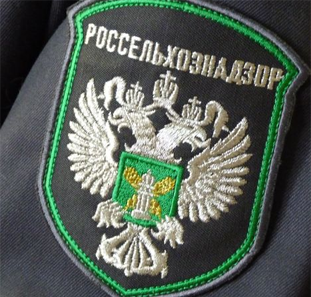Sergey Dankvert: meat exports will exceed 1 million tons this year

“Last year, the figure was 860 thousand tons. But we are already capable of exporting 1 million tons of meat, finished products, offal, live animals and products of animal origin. The dynamics of January-June indicate such a figure for the current year,” emphasized Sergei Dankvert, citing data from departmental information systems.
The head of the service recalled that Russia had been a net importer of meat for many years: the average annual import volume was approximately 3.5 million tons. At the same time, the transformation into a major exporter is taking place in the most difficult conditions, when as a result of military actions, complexes in the Bryansk, Kursk, and Belgorod regions were damaged.
Large volumes of exports not only change the structure of the market, but also force Rosselkhoznadzor to adjust the procedure for regulatory work with exports.
"Before, when we imported products, it was easy to work. Wherever you went, people fell at your feet, because we bought from them. And today we fall at your feet. Every month, two or three foreign delegations visit us. They inspect not only grain, but also meat, milk, and get acquainted with the production," noted Sergey Dankvert.
To a large extent, the rapid growth in the export of livestock products is ensured by the information systems of Rosselkhoznadzor . The timely development of such systems, their integration with similar solutions of foreign partners has significantly simplified veterinary control both during import and export, the head of Rosselkhoznadzor recalled.
How does this work?
Since 2014, Rosselkhoznadzor has been cooperating with more than 80 countries on the issue of integrating information systems in the field of veterinary control. Electronic veterinary certificates are exchanged with countries that have electronic certification systems, and in the absence of such systems, in order to ensure traceability, the service proposes using the Notifications module of the Mercury component of the FGIS VetIS to send preliminary notifications to Russia about completed documents, the service told Agroexpert.
Currently, electronic interaction is organized with the systems of nine countries: New Zealand , the Netherlands, Chile, Belarus , Kazakhstan , Australia , China , the Republic of Korea and Hong Kong.
Taking into account the reorientation of logistics to the East, Rosselkhoznadzor continues to work in the field of integration with Eastern partners. Electronic veterinary certification systems exist in Malaysia, China, the Republic of Korea, Hong Kong, Indonesia and the EAEU countries . In 2024 , the Republic of Korea will be transferred to Hong Kong in 2025.
18 years, 18 years of experience in the field of economic cooperation. These are some EU countries (Hungary, Bulgaria), Serbia, as well as neighboring countries ( Azerbaijan , Moldova, Kyrgyzstan, Armenia, Turkmenistan, Uzbekistan ). Also, the exchange of such notifications has been formalized with Thailand and Oman, Uruguay, Paraguay, Argentina, Bolivia, Colombia, Peru, Ecuador.
“Currently, activities are being carried out to integrate information systems with Brazil, the Kyrgyz Republic and Morocco,” Rosselkhoznadzor reminded.



























































